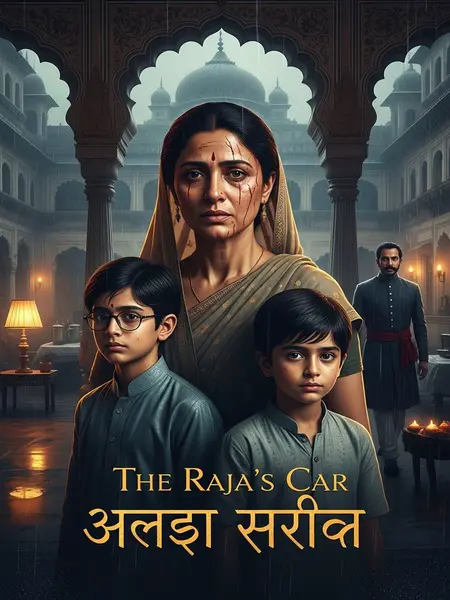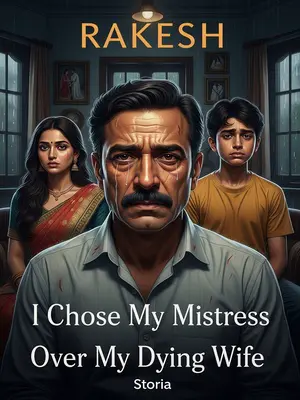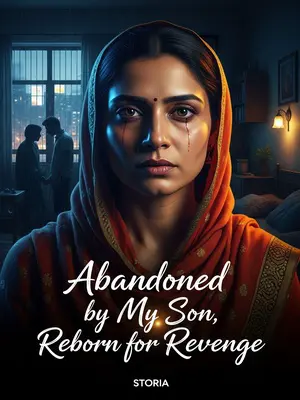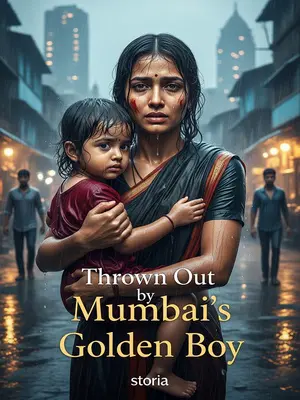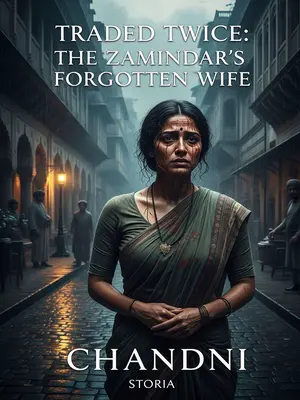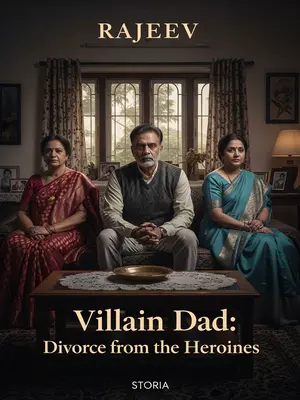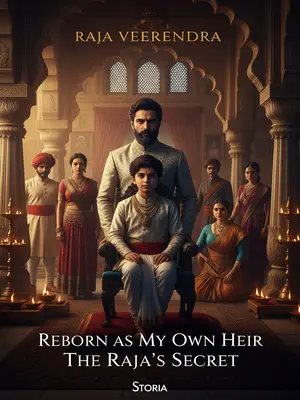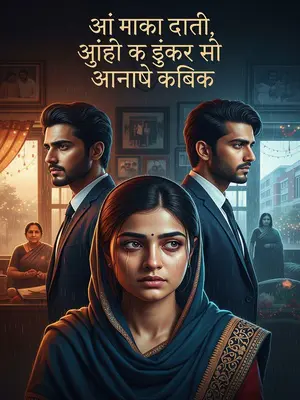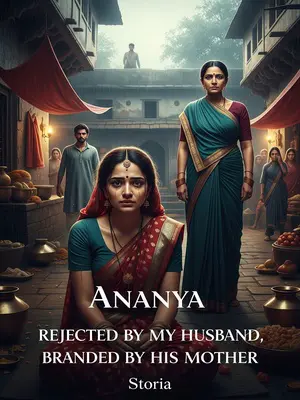Chapter 4: Rajpur Raja’s Bungalow
I turned back and finally saw the lantern hanging from the car.
Rajpur Raja’s Bungalow.
The lantern’s golden glow flickered with the insignia of Rajpur’s royal house. My throat tightened—memories rushing back of whispered warnings, veiled threats, and cold marble floors. Lucknow’s older women still spoke of that bungalow in hushed tones, fearing even the shadow of its gates.
I had been away for so long, so long that I’d almost convinced myself I could face it without fear.
But who wasn’t afraid at the mention of Rajveer Singh?
Whenever there was a commotion at the ghat, people didn’t even have to ask—they knew it was the Raja purging his enemies again.
In every paan shop and chai stall, his name was uttered with caution. “Don’t cross Rajveer Singh,” the old timers warned. Even the most hardened of local thugs melted away when his black Ambassador turned the corner.
This man held immense power and was ruthless in his methods. Yet, when it came to women, he was oddly restrained. In his prime, he had only his childhood sweetheart as his principal wife. Even though she could not bear children, he never took a second wife.
People gossiped that his loyalty was rare, almost foolish. Some said it was true love, others whispered that only a man with so much power could afford such principles.
But one day, a lowly music girl became pregnant with Rajveer’s child. Everyone thought she schemed for wealth, using shameless tricks to bear his son.
In the end, the Raja cared nothing for her. He let her give birth, then locked her away in a remote outhouse, nameless and without status. Later, for reasons unknown, the music girl crossed some line and was thrown out of the bungalow in the dead of winter, nearly freezing to death.
That music girl was me.
If not for Major Pratap, a patrolling officer, finding me beneath the wall, taking me in, and feeding and clothing me, I would not be alive today.
For two whole years, Rajveer never once thought of the woman he had discarded. Now, meeting him again by chance, I was filled with dread.
My hands shook. The memory of cold marble under my bare feet, the cloying scent of mogra garlands in the corridors, and the echo of my own footsteps late at night flooded back. Aarav, clutching my dupatta, looked up at me for reassurance.
"Do you want me to come down and invite you myself?" Rajveer’s voice was gentle from within the car.
His tone was as smooth as sandalwood oil, but I knew the danger beneath. No one ever refused Rajveer Singh—at least, not twice. I could feel the stares of the servants; some even pitied me. But I was used to this—obedience was survival.
I knew that the gentler he sounded, the more he was suppressing his anger. Looking around, I realised there was no one who could save Aarav and me. All I could do was obey.
So, pressing my lips together, I led a bewildered Aarav into the car.
Inside, the air was thick with warmth and the scent of attar—suddenly it felt like spring. Rajveer, dressed in a crisp kurta and shawl, sat beside a young boy who resembled him. Just by appearances, no one would associate the word "ruthless" with this father and son.
Aarav and I, in our plain clothes, sat anxiously across from them. My forehead was still smeared with blood. Rajveer looked at me as if my predicament was entirely my own fault.
He asked, "Does it hurt now?"
His question was not of concern, but accusation. His eyes flicked to my injury, then away, as though I’d chosen this fate out of stubbornness.
I said nothing, wiping my face roughly with my dupatta. Aarav frowned, took out the handkerchief I’d embroidered for him, and knelt up to gently help me clean the blood.
The small act—his careful hands, the smell of Dettol from my dupatta—made the car seem smaller. My heart squeezed with gratitude and guilt.
This display of motherly affection made the young heir, Arjun, sneer. He couldn’t help but say, "You fuss over that illegitimate boy—no wonder Ma says you have no sharam."
The venom in Arjun’s words was sharper than any slap. I heard the muttered approval of the elder servants—such talk was common in those marble corridors.
I’d heard such words countless times in the Raja’s bungalow. Arjun was raised by his legitimate mother, Rani Meenakshi, and always regarded me as a disgrace.
Even the air in that car seemed to curdle with old poison. I remembered nights spent stitching tiny shoes, kneeling in front of the family deity, praying for mercy that never came.
I was locked in a side outhouse, often burning the midnight oil to embroider, making shoes and kneepads stitch by stitch, even giving him the raksha kavach he’d worn since childhood through the old maid.
After all, he was my own flesh and blood—how could I not care?
But he never agreed to see me, tore those things to pieces, and had them thrown back over the wall. Staring at the mess on the ground, I thought: Perhaps birth can never outweigh upbringing.
I showed no reaction, but Aarav’s eyes turned red as he clenched his fists and shouted at Arjun, his voice cracking, "My mother is not low!"
The words echoed in the car, startling even the old driver, who glanced nervously in the rearview mirror.
I quickly covered Aarav’s mouth. He looked at me, aggrieved, tears rolling down his cheeks.
I gently whispered, “Chup ho ja, beta. This is not our world.”
"Don’t you have your own mother? If you call out again, I’ll cut out your tongue!" Arjun leaned over to threaten.
The chill in Arjun’s eyes was beyond his years—a sharpness born of too much privilege and too little love. I felt a pang in my chest.
Rajveer coldly reprimanded, "Arjun."
Arjun sat back, turning his head away in anger.
He slumped against the window, pouting like a petulant prince denied his favourite toy.
"I didn’t expect that after all you’ve suffered, you still haven’t changed," Rajveer said, his face expressionless. "Since that’s the case, I don’t have to consider Arjun’s feelings. I’ll bring you back to the bungalow and give you a title."
His words, calm and cold, landed like stones in my stomach. The car seemed to shrink, every eye boring into me.
Was this... letting me go?
Outside, the guards opened the car door at his command. Rajveer said, "Once you step out, even if you kneel three times and bow nine times in the future, I will not relent."
I thought Rajveer would torment me again, but he only said these inexplicable words, as if to sever all ties. I even felt a strange sense of relief.
There was a tightness in my chest, but also a sliver of freedom. The city’s neon lights winked beyond the rain.
So I quickly took Aarav and got out of the car, bowing my head and folding my hands, never uttering a word from start to finish.
My silence was my last weapon. The guards watched, some with pity, some with indifference. Aarav squeezed my hand harder.
After a few steps, someone seemed to call out to me in panic from behind.
But the wind and rain were too fierce, and I hurried home, pretending not to hear.
The night sky above Lucknow was a murky sea of clouds, the city’s celebrations faded to a distant throb. As we walked, Aarav kept glancing at me, worried, as if he feared I might disappear into the mist.
